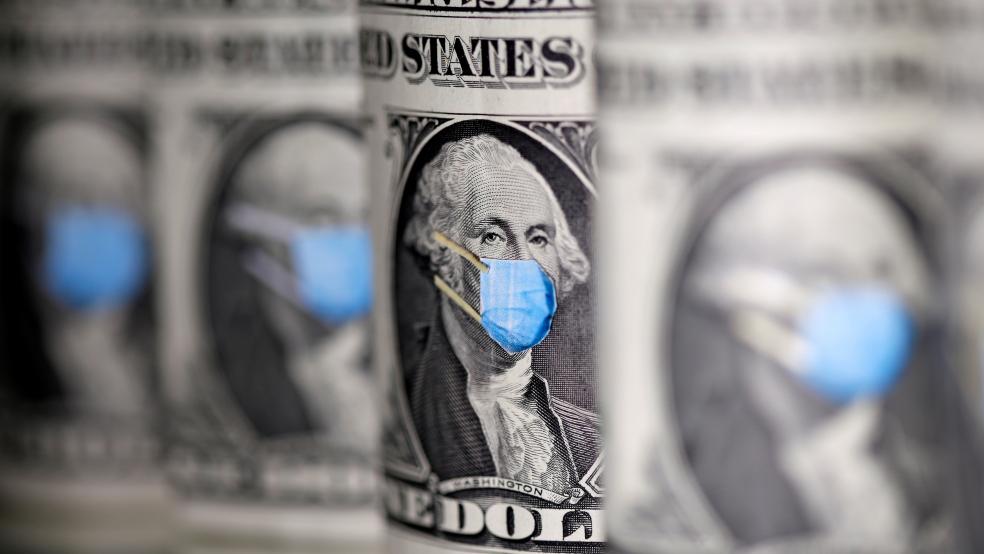Congress has provided a lifeline for millions of Americans hurt by the coronavirus pandemic, providing a boost to incomes via one-time direct payments and implementing a range of other emergency programs to prevent more widespread financial hardship, joblessness and hunger.
“This summer,” writes Ben Casselman at The New York Times, “that lifeline could snap.”
As states continue to reopen and Congress considers the contours of a next coronavirus relief package, many of the unprecedented steps taken to help businesses and consumers weather the pandemic and economic shutdown are set to expire, creating uncertainty for those who have benefited — and for the economy overall.
“The $1,200 checks sent to most households are long gone, at least for those who needed them most, with little imminent prospect for a second round. The lending program that helped millions of small businesses keep workers on the payroll will wind down if Congress does not extend it. Eviction moratoriums that are keeping people in their homes are expiring in many cities,” Casselman writes. “And the $600 per week in extra unemployment benefits that have allowed tens of millions of laid-off workers to pay rent and buy groceries will expire at the end of July.”
Aneta Markowska, chief financial economist for the investment bank Jefferies, tells the Times that the legislation passed thus far, including the $2.2 trillion CARES Act, won’t be enough. “The CARES Act was massive, but it was a very short-term offset to what is likely to be a long-term problem,” she says. “This economy is clearly going to need more support.”
What might that support look like? Here’s the latest:
McConnell says decision on ‘fourth and final’ bill will come in about a month: The $3 trillion package passed by the House this month has little chance of getting through the Senate, where Republican Majority Leader Mitch McConnell, while acknowledging this week that another aid bill is likely, has pushed for a pause, and for any additional legislation to be narrow. McConnell added Friday that the next coronavirus relief bill will be the final one.
“We’re taking a careful look at a fourth and final bill,” McConnell said Friday. “You could anticipate the decision being made on whether to go forward in about a month. And it will be narrowly crafted, designed to help us where we are a month from now, not where we were three months ago.”
House Speaker Nancy Pelosi, Senate Minority Leader Chuck Schumer and other Democrats have been urging Republicans to start negotiating immediately. "The cost of Republican inaction grows every day,” Schumer said Thursday. “Senate Republicans ought to stop sitting on their hands and work in a bipartisan way to provide the immediate help workers and families need.”
Some Dems skeptical about more $1,200 stimulus checks: House Democrats included another round of $1,200 relief payments in their bill, but the idea of additional direct payments faces oppositions not only from Senate Republicans but some Democrats as well, The Hill’s Alexander Bolton reports.
“I think the next round we’ve got to be more targeted to those who are really in need,” said Sen. Ben Cardin (D-MD), according to The Hill. “So I hope we can target this a little bit better to those who have been hit hard because of COVID-19.” And Sen. Ron Wyden (D-OR) says that he would support another round of direct payments but that isn’t his top priority. “My top priorities are tying expanded unemployment benefits to economic conditions and providing more help for the smallest of small businesses,” he said in a statement cited by The Hill.
$450 ‘back-to-work’ bonuses may be gaining momentum: With Republicans opposed to extending the $600-a-week in enhanced unemployment benefits set to expire at the end of July, Sen. Rob Portman (R-OH) has proposed that the federal government provide payments of $450 a week for several weeks to people who go back to work and stop collecting unemployment.
President Trump, who reportedly opposes extending the $600 unemployment-benefit boost, likes the back-to-work bonus idea, according to The Washington Post. "We've got to reward individuals for coming back to work," Larry Kudlow, the president’s top economic adviser, said Friday on Fox News. "There will be some kind of re-employment bonus. We're not going to go to the $600, that's a disincentive to work."
Discussions are reportedly ongoing about how big the bonus should be and how long it should last. Some White House officials and Rep. Kevin Brady (R-TX) have discussed allowing returning workers to get up to $1,200, the Post says.
There are still concerns about the idea, though. “An extra $450 gives people an extra incentive to go back to work,” Diane Swonk, chief economist at Grant Thornton, told the Post. “But the real issue is, how many jobs will we have and what kind of risk are people taking to go back to work?”
Economists widely expect the unemployment rate to stay above 10% through the end of the year, meaning that back-to-work bonuses may have more limited reach. “If you talk about a return-to-work bonus and you’re not also extending unemployment insurance, that’s a problem,” labor economist Martha Gimbel of Schmidt Futures told the Post. “We know a lot of people will still be unemployed.”
The bottom line: It’s likely going to be awhile before significant progress is made on the next coronavirus bill. A summer calendar sent by House Majority Leader Steny Hoyer (D-MD) shows no votes happening before June 30, though Hoyer wrote to colleagues Friday that he expects the House will be in session “at some point in June,” once the Senate acts on a bill.





